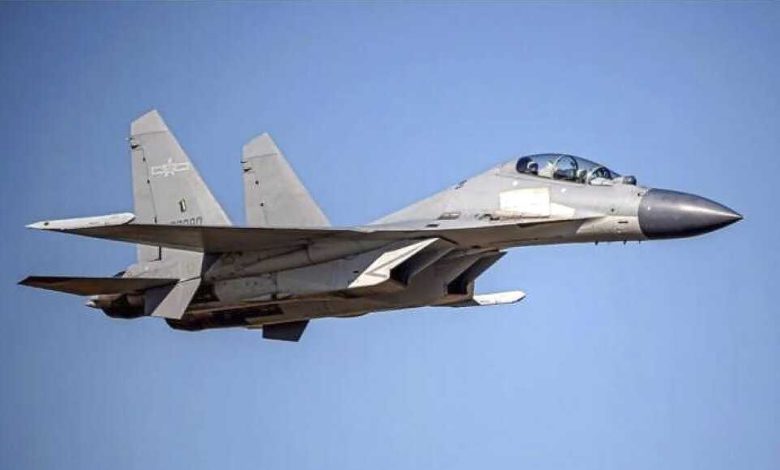

Video above: Analysis: High stakes, modest gains as Biden-Xi talkChina's military sent 71 planes and seven ships toward Taiwan in a 24-hour display of force directed at the island, Taiwan's defense ministry said Monday, after China expressed anger at Taiwan-related provisions in a U.S. annual defense spending bill passed on Saturday.China's military harassment of self-ruled Taiwan, which it claims is its own territory, has intensified in recent years, and the Communist Party's People's Liberation Army has sent planes or ships toward the island on a near-daily basis.Between 6 a.m. Sunday and 6 a.m. Monday, 47 of the Chinese planes crossed the median of the Taiwan Strait, an unofficial boundary once tacitly accepted by both sides, according to Taiwan's Ministry of National Defense.Among the planes China sent towards Taiwan were 18 J-16 fighter jets, 11 J-1 fighters, 6 Su-30 fighters and drones.Taiwan said it monitored the Chinese moves through its land-based missile systems, as well as on its own navy vessels."This is a firm response to the current US-Taiwan escalation and provocation," said Shi Yi, the spokesman for the PLA's Eastern Theater Command, in a statement on Sunday night. It announced that the PLA was holding joint combat patrols and joint strike drills in the waters around Taiwan.Shi was referring to the U.S. defense spending bill, which calls China a strategic challenge. With regard to the Indo-Pacific region, the legislation authorizes increased security cooperation with Taiwan and requires expanded cooperation with India on emerging defense technologies, readiness and logistics.China's military has often used large military exercises as a demonstration of force in response to U.S. government actions in support of Taiwan. It conducted large live-fire military exercises in August in response to U.S. House Speaker Nancy Pelosi's visit to Taiwan. Beijing views visits from foreign governments to the island as de facto recognition of the island as independent and a challenge to China's claim of sovereignty.
Video above: Analysis: High stakes, modest gains as Biden-Xi talk
China's military sent 71 planes and seven ships toward Taiwan in a 24-hour display of force directed at the island, Taiwan's defense ministry said Monday, after China expressed anger at Taiwan-related provisions in a U.S. annual defense spending bill passed on Saturday.
China's military harassment of self-ruled Taiwan, which it claims is its own territory, has intensified in recent years, and the Communist Party's People's Liberation Army has sent planes or ships toward the island on a near-daily basis.
Between 6 a.m. Sunday and 6 a.m. Monday, 47 of the Chinese planes crossed the median of the Taiwan Strait, an unofficial boundary once tacitly accepted by both sides, according to Taiwan's Ministry of National Defense.
Among the planes China sent towards Taiwan were 18 J-16 fighter jets, 11 J-1 fighters, 6 Su-30 fighters and drones.
Taiwan said it monitored the Chinese moves through its land-based missile systems, as well as on its own navy vessels.
"This is a firm response to the current US-Taiwan escalation and provocation," said Shi Yi, the spokesman for the PLA's Eastern Theater Command, in a statement on Sunday night. It announced that the PLA was holding joint combat patrols and joint strike drills in the waters around Taiwan.
Shi was referring to the U.S. defense spending bill, which calls China a strategic challenge. With regard to the Indo-Pacific region, the legislation authorizes increased security cooperation with Taiwan and requires expanded cooperation with India on emerging defense technologies, readiness and logistics.
China's military has often used large military exercises as a demonstration of force in response to U.S. government actions in support of Taiwan. It conducted large live-fire military exercises in August in response to U.S. House Speaker Nancy Pelosi's visit to Taiwan. Beijing views visits from foreign governments to the island as de facto recognition of the island as independent and a challenge to China's claim of sovereignty.
Source link









